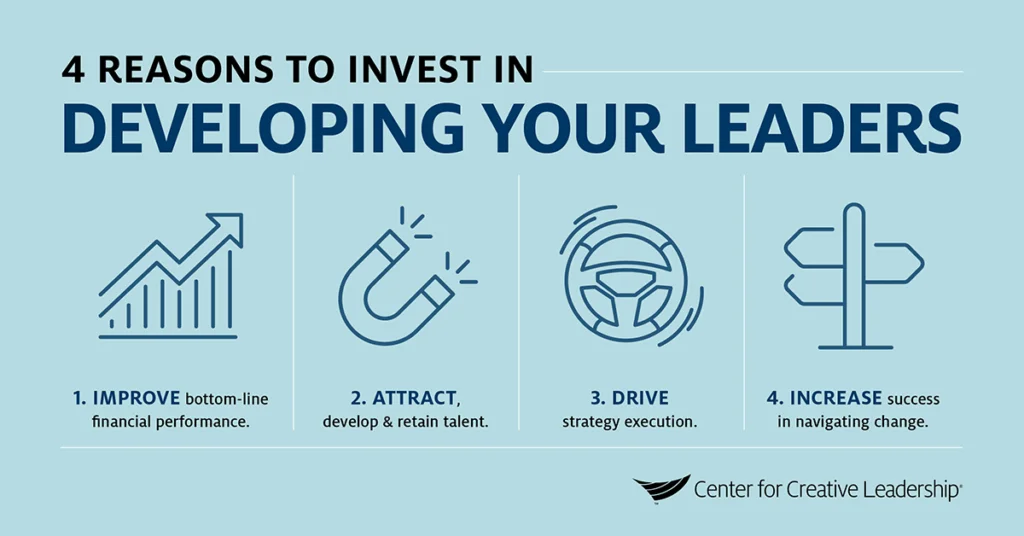What are the best strategies for effective leadership development?


Effective leadership development is crucial for organizations to thrive and succeed in today’s competitive business landscape. It involves nurturing and enhancing the skills, abilities, and qualities of individuals to become effective leaders. In this article, we will explore the best strategies for effective leadership development, including leadership training, coaching, programs, techniques, and tips.
1. Identify and Assess Leadership Skills
Before embarking on any leadership development initiative, it is essential to identify and assess the existing leadership skills within the organization. This can be done through performance evaluations, feedback from peers and subordinates, and self-assessment tools. By understanding the strengths and weaknesses of current leaders, organizations can tailor their development programs to address specific areas of improvement.
2. Provide Leadership Training
Leadership training programs are an effective way to develop leadership skills. These programs can be conducted internally or externally, depending on the organization’s resources and requirements. Leadership training should cover a wide range of topics, including communication skills, decision-making, conflict resolution, strategic thinking, and emotional intelligence. It is important to provide ongoing training opportunities to ensure continuous growth and development.
- Leadership training programs should be interactive and experiential, allowing participants to practice and apply their skills in real-life scenarios.
- Utilize a variety of training methods, such as workshops, seminars, online courses, and coaching sessions, to cater to different learning styles.
- Encourage leaders to seek additional training and education outside of the organization to broaden their knowledge and perspectives.
3. Implement Leadership Coaching
Leadership coaching is a powerful tool for developing leaders. It involves one-on-one sessions with a professional coach who provides guidance, support, and feedback to help leaders reach their full potential. Coaching can be particularly effective in addressing specific leadership challenges and helping leaders develop their unique leadership style.
- Match leaders with coaches who have expertise in their specific industry or leadership area.
- Set clear goals and expectations for the coaching relationship to ensure alignment with organizational objectives.
- Regularly review and evaluate the progress of coaching sessions to measure the impact and effectiveness.
4. Create Leadership Development Programs
Organizations should establish formal leadership development programs to provide a structured approach to leadership development. These programs can include a combination of training, coaching, mentoring, and job rotations to expose leaders to different aspects of the business and develop a well-rounded skill set.
- Identify high-potential employees and provide them with opportunities to participate in leadership development programs.
- Design programs that are tailored to the specific needs and goals of the organization.
- Include a mix of classroom learning, on-the-job training, and experiential activities to ensure a comprehensive learning experience.
5. Foster a Culture of Leadership
Effective leadership development goes beyond individual programs and initiatives. It requires creating a culture that values and promotes leadership at all levels of the organization. This can be achieved by:
- Setting clear expectations for leadership behavior and holding leaders accountable for their actions.
- Providing opportunities for employees at all levels to take on leadership roles and responsibilities.
- Encouraging open communication and collaboration, allowing employees to contribute their ideas and perspectives.
- Recognizing and rewarding leadership excellence to motivate and inspire others.
6. Continuously Evaluate and Improve
Leadership development is an ongoing process that requires continuous evaluation and improvement. Organizations should regularly assess the effectiveness of their leadership development initiatives and make necessary adjustments to ensure they are aligned with changing business needs and evolving leadership trends.
- Collect feedback from participants and stakeholders to gauge the impact of leadership development programs.
- Monitor the progress and success of leaders who have gone through development programs to measure the return on investment.
- Stay updated on the latest leadership best practices and incorporate them into development initiatives.
In conclusion, effective leadership development is essential for organizations to thrive in today’s competitive business environment. By implementing strategies such as identifying and assessing leadership skills, providing training and coaching, creating development programs, fostering a culture of leadership, and continuously evaluating and improving, organizations can develop strong and effective leaders who can drive success and achieve organizational goals.
Recent Posts
How do I create an engaging and informative online quiz or assessment?
Creating an engaging and informative online quiz or assessment can be a powerful tool for… Read More
What are the most effective methods for managing and reducing work-related stress in the hospitality industry?
Work-related stress is a common issue in the hospitality industry, where employees often face long… Read More
How can I improve my assertiveness and communication skills in a leadership position?
In a leadership position, assertiveness and effective communication skills are crucial for success. Being able… Read More
What are the key elements of a successful employee recognition and rewards program?
Employee recognition and rewards programs play a crucial role in motivating and engaging employees, as… Read More
How do I effectively manage and respond to customer feedback and reviews?
Customer feedback and online reviews play a crucial role in shaping a company's reputation and… Read More
What are the best strategies for effective time management as a stay-at-home parent?
Effective time management is crucial for stay-at-home parents who juggle multiple responsibilities on a daily… Read More